UMass Extension Climate Change Initiatives
Learn more about some of the climate change mitigation and adaptation efforts being led by Extension staff and faculty to benefit people and nature.
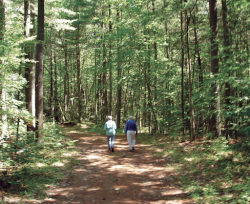
- MassWoods is an initiative helps landowners and others manage and conserve their land in light of a changing climate. All forests have some characteristics that make them resilient and others that make them vulnerable. We can increase the resiliency of our forests and landscapes by evaluating these characteristics and implementing adaptation actions. See here for more.
- Many landowners have also begun to ask how their management affects the carbon within their forest and thus the forest’s ability to mitigate climate change. See here for more.
- Extension Lead: Paul Catanzaro, Contact

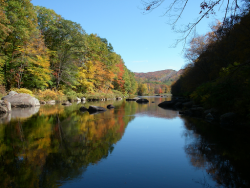
- This program combines social and river science, institutional and policy research, and community outreach to help New England’s communities become river-smart. Being “river-smart” means managing rivers and riverside landscapes, as well as our own actions and expectations, so people and communities are more resilient to river floods and so the environmental integrity of rivers is restored. This includes reducing flood severity, flood damage, and flood costs by understanding and accommodating the natural dynamics of rivers and river floods.
- Extension Lead: Christine Hatch, Contact

- This tool is designed to inform and inspire local action to protect the Commonwealth’s natural resources in a changing climate. It was developed for local decision-makers, conservation practitioners, large landowners, and community leaders across the state. This initiative was a partnership between UMass Amherst, the Northeast Climate Adaptation Science Center, and MassWildlife.
- Extension Lead: Scott Jackson, Contact
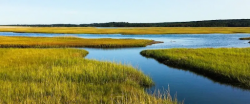
- Salt marsh ecosystems are very vulnerable to climate impacts such as sea level rise. This project’s goal is to use UAS data to provide environmental managers information on the ecological health of salt marshes, including their vulnerability to flooding and their physical and biological condition in a changing climate.
- Extension Lead: Scott Jackson, Contact
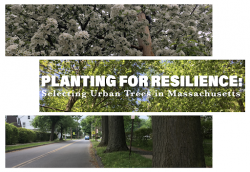
- Trees have an essential role to play in mitigating the effects of climate change, but it is important to make climate-informed planting decisions. This manual is designed to help tree wardens, urban foresters, professional arborists, nonprofit volunteers and private residents in selecting and planting trees well suited to thrive in the Commonwealth’s cities and towns.
- Extension Lead: Richard Harper, Contact
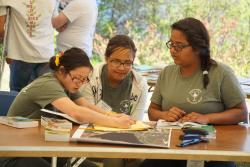
- The Envirothon is Massachusetts’ leading natural resource education program for high school students, emphasizing hands-on, team-oriented problem solving and community involvement that prepares young people for environmental careers and active citizenship.
- Extension Lead: Brita Dempsey, Contact
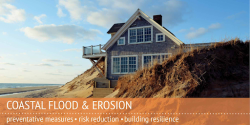
- Storms, flooding, and erosion can damage coastal property and affect valued beaches, dunes, and habitat. Our resources will help you evaluate these threats and what you can do to protect your property and community. The Coastal Processes Team provides technical assistance to the communities of Barnstable County on a variety of coastal land protection and management issues, including the Community Rating System, a voluntary program that municipalities may choose to participate in to earn discounts on flood insurance for their constituents.
- Extension Leads: Greg Berman, Contact and Shannon Hulst, Contact







